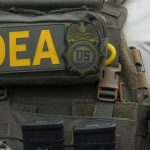Dominican Republic- Haiti crisis dominates agenda of Euro-Latin American Assembly

Santo Domingo.- The Euro-Latin American Interparliamentary Assembly (EuroLat), convening legislators from participating countries, including its first-ever session in the Dominican Republic, has placed the Haitian crisis and the conflict concerning the Masacre River diversion canal on its agenda as a “special point.”
Amado Cerrud, the Assembly’s Latin American president, emphasized that the Haitian issue would be discussed across various permanent commissions during the international meeting to address it comprehensively, as the crisis has regional implications beyond Haiti.
Senator Faride Raful initiated this international assembly, aiming to establish forums for discussing common topics between Latin and European countries, such as migration, cybersecurity, climate, food security, health, inflation, and food supply chains.
During the assembly’s opening ceremony, Ricardo de los Santos, President of the Dominican Senate, appreciated the United Nations Security Council’s decision to deploy a military force in Haiti. He emphasized that the Dominican Republic has been highly supportive of Haiti, but the crisis requires an international community effort, stating that “stability in Haiti is the responsibility of the international community.”
Vice President Raquel Peña, representing the Executive Branch at the assembly, indicated that the Dominican government has never ruled out the possibility of dialogue with Haiti. She stressed that the government proposed dialogue concerning the Massacre River conflict before implementing restrictive measures. Peña stated that the dialogue remains open.
Amado Cerrud, the co-president of EuroLat, condemned the idea of using walls or draconian laws to stop the flow of Haitians into the Dominican Republic. He called for a broader discussion on the issue involving the opinions of all Latin American countries through EuroLat.

















They can complain all they want about the walls, DR will still keep building, reinforcing is security in the border, and there’s nothing they going to do about it the international community. Investment money will still arrive into the country, terrorism will still break record’s corporations and individuals investing in the country the border wall gives them peace of mind, knowing there investment is safe, the country security is strong and it will stay strong